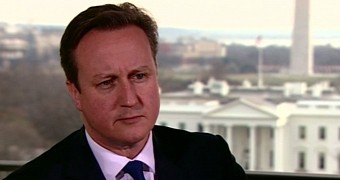As cyber-attacks against large companies continue to grow, part of the steps taken by the US and the UK is to cooperate more closely and test their cyber defenses and expertise by initiating cyber incidents against each other.
UK Prime Minister David Cameron has said that these cyber war games already happen between the two countries, but there is the need for efforts to be stepped up and do more towards the protection of the citizen’s and companies’ data.
Penetration tests will focus on specific targets
In an interview to the BBC, Cameron says that cyber cells will be created on both sides of the Atlantic, at MI5 and FBI, specifically for sharing information.
The purpose of these penetration tests is to increase the defenses of important companies in the two countries. In the first wave of staged attacks, the targets will be the Bank of England, commercial financial institutions, the City of London, and Wall Street.
Cyber defense mechanisms of other targets part of the national infrastructure will also be tested during the exercises.
The decision to strengthen cyber cooperation between law enforcement agencies comes on the background of recent attacks aiming at large corporations, such as the one on Sony Pictures Entertainment in 2014
However, more serious ones also occurred last year in the US, like the one on JPMorgan, which resulted in no less than 83 million individuals being affected. Home Depot was affected by a cybercriminal attack that led to compromising the information of 56 million credit cards and exposing 56 million email addresses.
More surveillance capabilities
In recent news, the Twitter and YouTube accounts of the US Central Command (CENTCOM) have been hijacked by a pro-ISIS group of hackers calling themselves CyberCaliphate. CENTCOM is a division within the Pentagon that oversees military activities in the Middle East area.
David Cameron has also talked about the government’s need for increased surveillance capabilities as far as encryption in communication software is concerned.
“We need to be able, in extremis, to interrupt the contact between the terrorists, whether they’re using fixed phones, mobile phones or the Internet,” Cameron said, adding that “we need to work with these big companies, we have good relationships with them, to make sure that we can keep people safe.”
In a speech early this week Cameron said that means of communication that do not offer the possibility “to read someone’s letter, to listen to someone’s call” must not be allowed.

 14 DAY TRIAL //
14 DAY TRIAL //